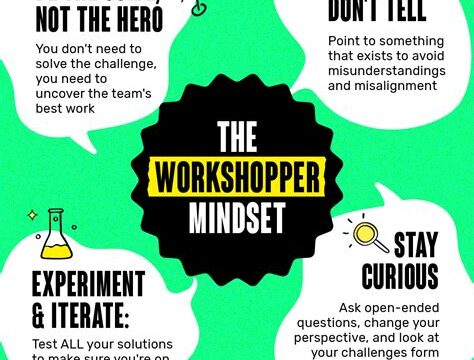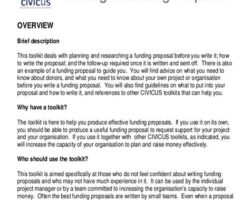Maximize your workshop’s impact with expert tips on venue selection, agenda planning, icebreakers, presentation tools, time management, materials, and feedback analysis. Boost engagement and effectiveness today!
Choosing the Right Venue
When planning a workshop, one of the most critical decisions to make is choosing the right venue. The venue sets the tone for the entire event and can greatly impact the success of the workshop. It is important to consider the location, size, and layout of the venue to ensure it meets the needs of the workshop.
Another important factor to consider when choosing a venue is the accessibility for all participants. The venue should be easily accessible by public transportation and have adequate parking for those who choose to drive. Additionally, the venue should be equipped to accommodate individuals with disabilities, ensuring that all participants can fully engage in the workshop.
Lastly, the ambiance and atmosphere of the venue should align with the objectives of the workshop. Whether it’s a professional setting for a corporate workshop or a more relaxed environment for a creative workshop, the venue should complement the theme and purpose of the workshop.
Effective Agenda Planning
When planning a workshop, one of the most crucial elements to consider is the agenda. A well-thought-out agenda is essential for keeping the workshop on track and ensuring that all topics are covered within the allocated time frame. The agenda should be organized in a logical sequence, starting with an introduction and ending with a summary or conclusion. Each agenda item should have a designated time slot to keep the workshop running smoothly.
It’s important to prioritize agenda items based on their importance and relevance to the overall objectives of the workshop. This will ensure that the most critical topics are given adequate time and attention. In addition, building in flexibility into the agenda allows for adjustments to be made on the spot in response to participant feedback or unexpected developments.
Another key aspect of effective agenda planning is to incorporate interactive and engaging activities throughout the workshop. This can help maintain participant interest and energy levels, especially during long sessions. Interactive activities could include group discussions, hands-on exercises, or multimedia presentations. It’s also essential to allocate sufficient time for breaks to allow participants to recharge and network with one another.
Engaging Icebreaker Activities
Engaging Icebreaker Activities
Icebreaker activities are essential for creating a positive and welcoming atmosphere at the beginning of a workshop. These activities are designed to help participants feel comfortable with each other and with the facilitator. By engaging in icebreaker activities, participants are given an opportunity to break the ice and interact with one another in a lighthearted and non-intimidating way.
One engaging icebreaker activity is the Two Truths and a Lie game. Participants take turns introducing themselves to the group by sharing two true statements about themselves and one false statement. The rest of the group then tries to guess which statement is the lie. This activity is not only fun, but it also encourages participants to be creative and open up to the group.
Another effective icebreaker activity is the Human Knot. Participants stand in a circle and reach across to grab the hands of two different people within the circle. The objective is to work together, without letting go of each other’s hands, to untangle the human knot. This activity not only promotes teamwork and problem-solving skills, but it also helps break down social barriers between participants.
Interactive Presentation Tools
Interactive Presentation Tools
When it comes to delivering a successful workshop or seminar, the use of interactive presentation tools can greatly enhance the learning experience for your participants. One such tool is the use of audience response systems, which allow real-time audience feedback and engagement through live polls and surveys. These tools not only grab the attention of the audience, but also provide valuable insights into their understanding and opinions on the topic being discussed.
Another important interactive presentation tool is the use of multimedia elements such as videos, interactive slides, and animations. These can help break up the monotony of a traditional presentation and keep participants engaged and focused on the content. Additionally, incorporating interactive elements like quizzes and games can further enhance the learning experience and ensure that the workshop is both informative and enjoyable for the attendees.
Finally, an often overlooked interactive presentation tool is the use of virtual collaboration platforms, which allow participants to interact and collaborate in real-time, regardless of their physical location. These platforms can facilitate group activities, brainstorming sessions, and discussions, making the workshop more dynamic and inclusive. By leveraging these interactive presentation tools, workshop facilitators can create an engaging and effective learning environment that maximizes participant involvement and understanding.
Facilitating Group Discussions
Facilitating group discussions is an essential part of any successful workshop. It is important to create an environment where all participants feel comfortable sharing their thoughts and ideas. One effective strategy is to establish ground rules at the beginning of the discussion, such as not interrupting others and actively listening to different perspectives. This can set the tone for a respectful and open dialogue.
Another important aspect of facilitating group discussions is to encourage participation from all attendees. This can be achieved by asking open-ended questions and giving everyone a chance to speak. It’s also helpful to have a variety of discussion prompts and activities prepared to keep the conversation dynamic and engaging.
Additionally, as the facilitator, it’s crucial to remain neutral and avoid imposing personal opinions. Instead, focus on guiding the conversation, summarizing key points, and redirecting the discussion if it veers off track. Creating a safe and inclusive space for participants to express their thoughts is the key to a successful group discussion.
Effective Time Management Strategies
In the fast-paced world of workshop planning and execution, time management is a critical skill to ensure that everything runs smoothly and efficiently. It is important to prioritize tasks and allocate time wisely to maximize productivity. Using task management tools such as project management software or online calendars can help keep track of deadlines and stay organized. By breaking down larger tasks into smaller, manageable chunks, it becomes easier to stay on schedule and meet deadlines.
Effective time management also involves setting realistic goals and timelines, as well as knowing when to delegate tasks to others. Being able to delegate responsibilities to a capable team can help free up valuable time for other important tasks. It is essential to communicate clearly with team members and ensure that everyone understands their role and the timeline for completing their tasks.
Furthermore, it is important to minimize distractions and interruptions during the workshop planning process. This may involve setting boundaries for when and how often to check emails, social media, or other non-essential tasks. By creating a focused work environment, it becomes easier to stay on track and make the most of the available time.
Providing Workshop Materials
Providing the right workshop materials is crucial for the success of any workshop. Whether it’s handouts, presentations, or other resources, the materials provided can make or break the learning experience for participants. It’s important to ensure that the materials are relevant, easy to access, and well-organized to maximize the impact of the workshop.
One of the key considerations when providing workshop materials is to use engaging and visually appealing resources. This can include well-designed handouts, interactive presentations, and multimedia tools that will keep participants interested and involved throughout the workshop. By making the materials visually appealing, you can enhance the overall learning experience and make the content more memorable for participants.
Another important aspect of providing workshop materials is to ensure that they are accessible and easy to navigate. This means organizing materials in a logical manner, providing clear instructions for accessing digital resources, and offering printed materials for participants who prefer physical copies. By prioritizing accessibility, you can make sure that all participants can easily engage with the materials and get the most out of the workshop.
Feedback Collection and Analysis
Feedback collection and analysis are crucial components of any successful workshop. Gathering feedback from participants allows workshop organizers to understand what worked well and what needs improvement. This information is valuable for planning future workshops and refining the content and format of the current workshop. In order to effectively collect feedback, organizers should utilize a variety of methods, including surveys, interviews, and group discussions. By gathering feedback through multiple channels, organizers can gain a more comprehensive understanding of participant perspectives and experiences.
Once feedback has been collected, it is important to analyze the data in a meaningful way. This may involve identifying common themes or trends, categorizing feedback into specific areas of focus, and identifying actionable insights. By analyzing feedback, workshop organizers can identify strengths and weaknesses, as well as areas for improvement. This analysis can inform decisions about future workshop content, format, and facilitation techniques, ultimately leading to more impactful workshops and satisfied participants.
It is also important to communicate the results of feedback collection and analysis to workshop participants. This demonstrates that their input is valued and that their feedback is being used to inform future workshops. Transparency about the feedback process and outcomes helps to build trust and engagement among participants, creating a more positive and open workshop environment.
Frequently Asked Questions
What are the essential resources needed for a successful workshop?
The essential resources for a successful workshop include a well-equipped venue, presentation materials, interactive tools, handouts, and refreshments.
How can I create an engaging workshop agenda?
To create an engaging workshop agenda, consider the goals of the workshop, the needs of the participants, and incorporate a mix of interactive activities, group discussions, and hands-on exercises.
What are some tips for managing time effectively during a workshop?
To manage time effectively during a workshop, set a clear schedule, stick to time limits for each segment, and be prepared to make adjustments as needed to ensure all topics are covered within the allocated time.
How can I encourage active participation from workshop participants?
Encourage active participation by creating a welcoming environment, asking open-ended questions, and incorporating group activities that require input from all participants. Also, provide opportunities for sharing experiences and insights.
What are some effective ways to gather feedback after a workshop?
Effective ways to gather feedback include distributing surveys or feedback forms, conducting group discussions, and offering one-on-one feedback sessions. It is important to gather both positive and constructive feedback to improve future workshops.
What are the key factors for ensuring a successful workshop facilitation?
Key factors for successful workshop facilitation include good communication skills, the ability to manage group dynamics, adaptability, and the capacity to create a supportive and inclusive atmosphere for all participants.
How can I evaluate the overall effectiveness of a workshop?
Evaluating the overall effectiveness of a workshop involves assessing the achievement of workshop objectives, participant engagement levels, feedback received, and the application of workshop learnings in real-life situations.





